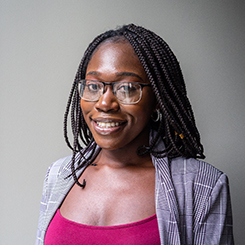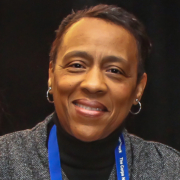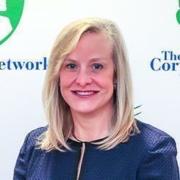
Among other topics, discussion focused on the project and enrollment priorities, funding, structure, and the role of AmeriCorps in a Civilian Climate Corps initiative.
Watch full discussion on Twitter
Watch full discussion on Facebook
Washington, DC (June 24, 2021) –– On Wednesday, June 23, Sen. Edward J. Markey (D-MA) led the Senate Climate Change Task Force in a bicameral public discussion on proposals for establishing a national Civilian Climate Corps program. Julia Hillengas, Executive Director of PowerCorpsPHL in Philadelphia, as well as Romeo McCloud, a Crew Leader and PowerCorpsPHL AmeriCorps alumnus, joined a panel of witnesses to speak on the current Corps movement and the opportunities for a larger national initiative. PowerCorpsPHL is an accredited Corps of The Corps Network.
This hearing marked a rare occurrence in which Senate and House leaders have come together to publicly discuss the benefits of a Civilian Climate Corps, as well as the priorities and shared goals among the various Civilian Climate Corps legislative proposals that have been introduced in Congress over the past year. The Congressional participants spoke of their collective desire to see an equitable Civilian Climate Corps initiative that will provide job opportunities, address backlogged projects on America’s lands and infrastructure, and take action against climate change. Congressional participants in the discussion included:
Sen. Edward J. Markey (D-MA)
Sen. Bernie Sanders (D-VT)
Sen. Ron Wyden (D-OR)
Sen. Bob Casey, Jr. (D-PA)
Sen. Chris Coons (D-DE)
Sen. Martin Heinrich (D-NM)
Rep. Judy Chu (CA-27)
Rep. Alexandria Ocasio-Cortez (NY-14)
Rep. Joe Neguse (CO-02)
In addition to Hillengas and McCloud, panelists included Mark Paul, Assistant Professor at New College Florida and Fellow at the Berggruen Institute at the University of Southern California, and Tyson Bertone-Riggs, Coalition Director, Rural Voices for Conservation Coalition.
Hillengas spoke to the importance of the existing network of Service and Conservation Corps programs in helping scale a national Civilian Climate Corps. She also provided testimony on how Corps are uniquely positioned to coordinate with local employers to design programs and create pathways to jobs. Additionally, Hillengas spoke about the need to increase AmeriCorps living stipends and Siegel Education Awards, and enhance the flexibility of AmeriCorps rules to allow additional, more robust training for members.
McCloud provided compelling testimony about the transformative nature of a service term in a Corps. He spoke about the leadership and skills development aspects of a Corps experience, and about how Corps instill a lifelong sense of commitment to one’s community and the environment. McCloud also spoke about the lack of awareness about programs like PowerCorpsPHL and the importance of messaging about service opportunities to a wider audience.
The Senators and Representatives in attendance highlighted the various legislative proposals they have introduced or co-sponsored. Several members spoke about the role a national Corps initiative can play in mitigating and responding to wildfires, as well as addressing critical maintenance needs on public and private lands. There was consensus among the members about the necessity of a bold Civilian Climate Corps program. The members pledged to continue working together and with the panelists and other key stakeholders to develop a successful program and clarify specifics for implementation of a Corps initiative.

































































